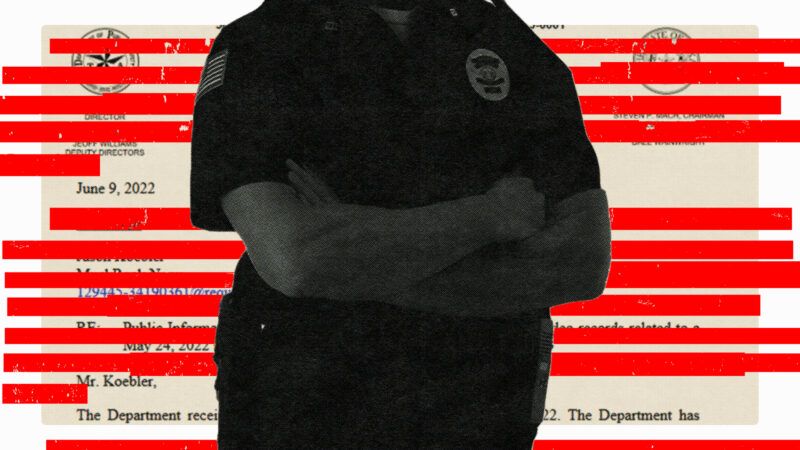Texas Law Enforcement Is Aggressively Fighting Public Records Requests About the Uvalde Mass Shooting
Transparency advocates say police could invoke a notorious loophole that allows them to hide records of deaths in custody and police killings.

In the aftermath of the school shooting in Uvalde Texas, news outlets around the country have filed scores of public records requests trying to uncover more information about the delayed police response, but law enforcement agencies are fighting to reject those requests.
Last week, a law firm representing the city of Uvalde sent a letter to the Texas Attorney General's Office asking it to rule on whether the city can cite an avalanche of exemptions—52, according to the Associated Press—that it believes should allow it to deny public records requests from numerous media organizations related to the May shooting that left 19 students and two teachers dead.
Some records have come out. The New York Times, for instance, received transcripts of body camera footage, but the majority of the records requests filed by local and national media are in limbo as agencies ask Ken Paxton's office to review them. The Texas Tribune and ProPublica report that Texas Gov. Greg Abbott's office, the Texas Department of Public Safety, and the U.S. Marshals Service are also requesting rulings from Paxton's office. These reviews are required for any non-routine rejection of a records request in Texas.
The most likely reason that the release of public records from the shooting will be delayed is the several ongoing police investigations, a commonly cited reason for withholding records. However, Vice reported that the Texas Department of Public Safety also argued that the records sought by the news outlet could also be used by criminals to identify "weaknesses" in police tactics and "would provide criminals with invaluable information concerning Department techniques used to investigate and detect activities of suspected criminal elements."
Texas transparency activists also say police could invoke the so-called "dead suspect loophole," a provision in Texas' public records law that allows law enforcement to withhold records on cases that didn't result in a conviction.
The statute was supposed to protect the privacy of the wrongfully accused and innocent, but it is also frequently invoked by Texas law enforcement to hide records of deaths in police custody. A 2018 Reason investigation found at least 81 cases where police departments cited the loophole to withhold records of deaths in police custody from reporters, lawyers, and family members of the deceased.
"It's being misused by many law enforcement agencies across the state to try to hide what really happened when someone dies in custody or when a suspect is killed on-site," says Kelley Shannon, executive director of the Freedom of Information Foundation of Texas.
State Rep. Joe Moody, a Democrat, has introduced bills over the past several years to close the loophole.
"They could make that decision; they shouldn't have that choice," Moody told NPR of the possibility of the loophole being used to withhold records about the Uvalde mass shooting. "To understand what our government is doing should not be that difficult—and right now it is very difficult."
All of Moody's bills to close the loophole died following opposition from a powerful police lobby, the Combined Law Enforcement Associations of Texas (CLEAT), which argued that the legislation was "pushed by anti-police groups who want access to the information so they can post it on social media and trash officers who are involved in high profile incidents."
However, the involvement of federal investigators will offer a workaround if Texas agencies withhold records. Because the Department of Justice is also investigating the Uvalde shooting, records that it gathers will be subject to the federal Freedom of Information Act, which doesn't include the loophole.
In any case, there is nothing stopping local and state agencies from voluntarily releasing records on the shooting, a step that would be welcomed after the confusing, contradictory, and false narratives offered by public officials in the aftermath of the shooting. The public was initially told that the Uvalde shooter fought his way through a school resource officer and two other police officers before barricading himself in a classroom. "Barricaded" turned out to mean that the gunman locked the door. Now news outlets are reporting that police never checked to see if the door was locked during the hour or so that they waited to breach the classroom.
"It would be in the best interest of law enforcement, state officials, the community, the state of Texas, the nation, for them to start releasing more information. There's this whole anti-transparency veil happening with the Uvalde case. Everybody wants to know more, wants to know what happened and how it happened, so this can be prevented in the future," Shannon said. "Even if they don't have to release it, they should be releasing it."


Show Comments (29)